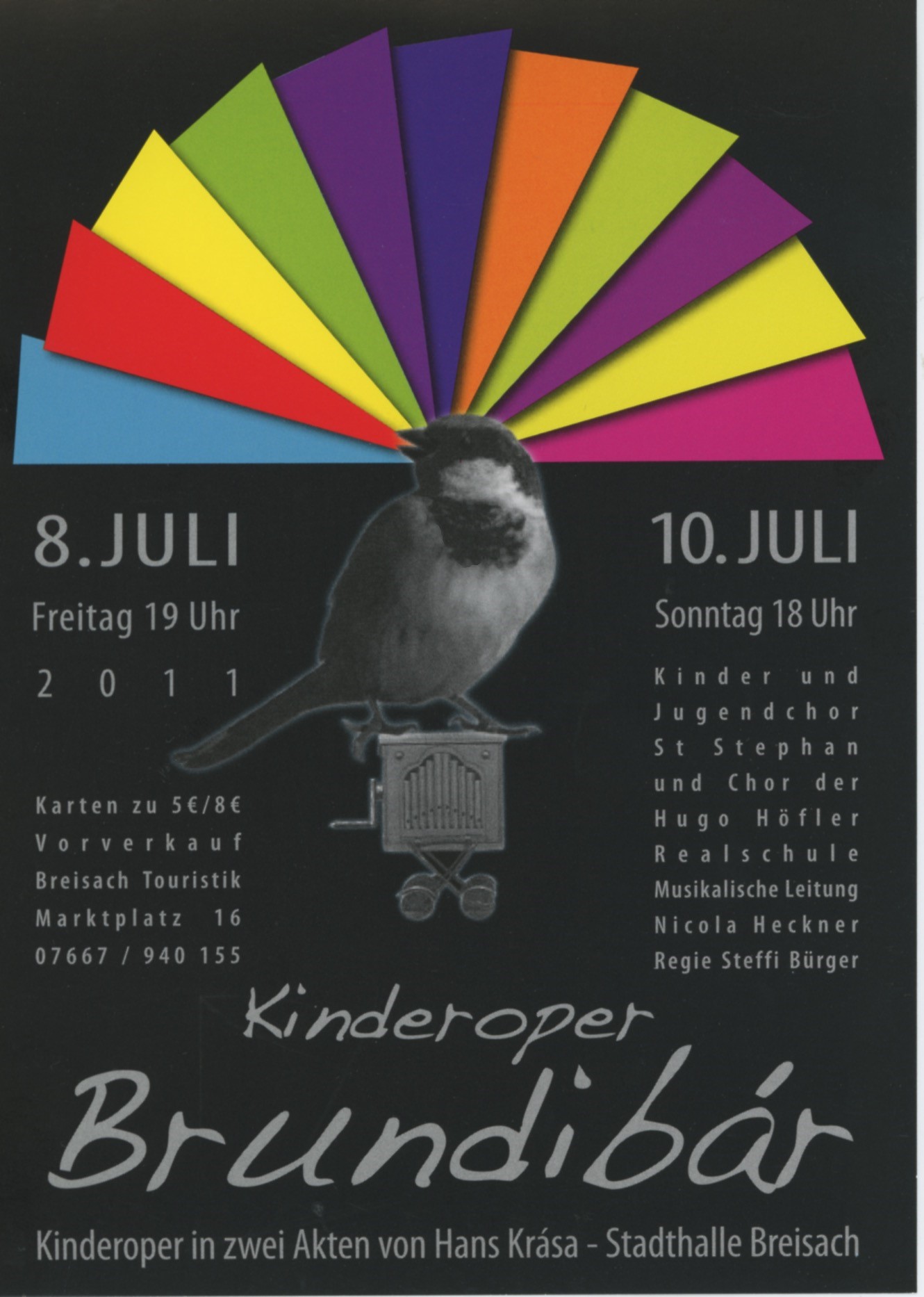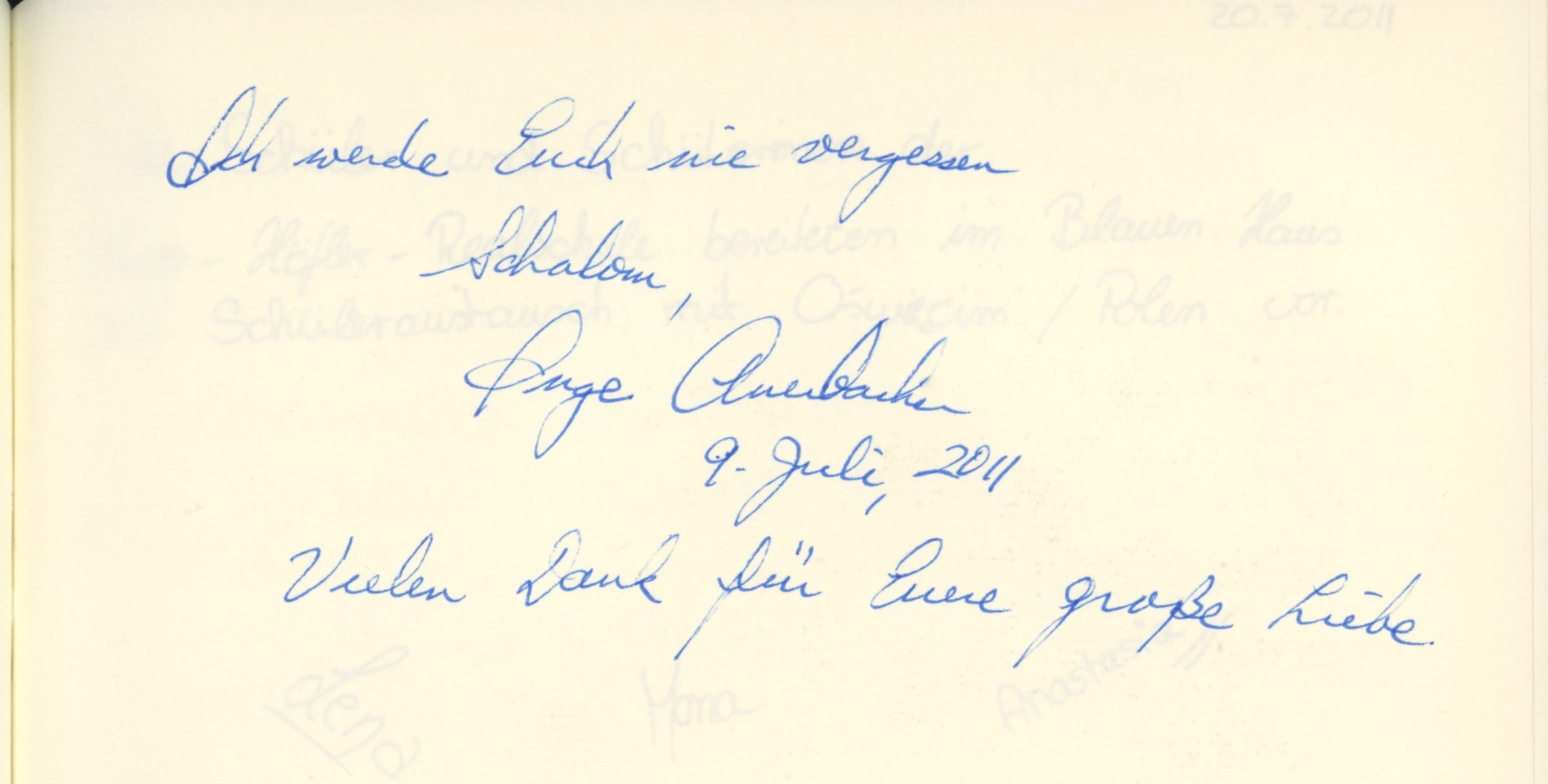27.01.2022
INGE AUERBACHER TO ADDRESS THE GERMAN BUNDESTAG
On the occasion of the 77th anniversary of the liberation of the German concentration and extermination camp Auschwitz by Soviet troops on January 27, 1945, the Bundestag, or German Parliament, will hold a memorial service for the victims of National Socialism on Thursday.
Holocaust survivor Dr. h. c. Inge Auerbacher was invited to give a commemorative speech this year, as was the President of the Israeli Parliament, the Knesset, Mickey Levy.
The members and staff of the Blue House Memorial are linked to Inge Auerbacher by decades of friendship and cooperation. The 87-year-old Holocaust survivor was born in 1934 in Kippenheim, Baden, and spent her early years in Jebenhausen and Göppingen. As a seven-year-old, she was deported to the Theresienstadt concentration camp in 1942.
After its liberation by the Red Army, the family was initially sent to a refugee camp for so-called “displaced persons” in Stuttgart. They returned to Göppingen for a short time. Then, in May of 1946, the family emigrated to the United States and settled in New York. In 1953, Inge Auerbacher, who later worked as a chemist, obtained U.S. citizenship. In 1986, she published her childhood memoirs “I am a Star.”

Photo caption: screenshot from the recording of the opera “Brundibar,” July 8, 2011.
Inge Auerbacher’s last visited Breisach in November of 2018.
From among the many meetings and conversations with her, the Blue House team particularly remembers the days when, at the invitation of the Blue House, Inge Auerbacher attended the rehearsals and the performance of the children’s opera “Brundibár” in 2011. At that time, the children’s choir of St. Stephen’s Minster Parish and the choir of the local middle school Hugo-Höfler-Realschule, under the musical direction of Nicola Heckner and the direction of Steffi Bürger, brought the opera by Prague composer Hans Krása, written in 1938, onto the stage of the Breisach Stadthalle.
The premiere of “Brundibár” took place in 1941 in a Jewish orphanage in the Czech capital. Because the German occupiers in what was then Czechoslovakia did not permit the performance of works by Jewish composers, the opera had to be performed in secret. The Jewish composer Hans Krása was sent to the Theresienstadt concentration camp in 1942. There the opera was subsequently performed 55 times.
Inge Auerbacher also heard the opera there during her imprisonment and told the young singers in Breisach: “I was a child in Theresienstadt between seven and ten years old and saw this opera then. I couldn’t understand the Czech language, unfortunately, but I did quietly sing along, too.”
Krása, along with most of the others involved in the performances of “Brundibár” in Theresienstadt, was murdered in Auschwitz soon after. During the Breisach “Brundibár” project, the children and young people who took part in the performance of the opera had many opportunities to listen to Inge Auerbacher and to ask questions: “Why didn’t they [the children] just run away?”.
Moved by the premiere performance, Inge Auerbacher went on stage after the last song and thanked the participants:
“Children, you did that very beautifully and I think the Theresienstadt children in heaven sang along with you. …I am very touched, I have met many students through the lectures I have given and I think that the evil Brundibár has lost and the good has won. And that’s how it should be in life. And as the end song goes – we want peace too. Maybe we could sing it again together.”

In 2021, we encountered several of these young people again, for example in the youth advisory board of the city of Breisach, in which they advocate for the preservation of the burial path at the new Jewish cemetery, which is endangered by building development. Today they continue to carry the “little flame” that was lit 10 years ago by the encounters and experiences with Inge Auerbacher and the work on “Brundibár”. It is our wish that we, too, will continue to connect and touch young people with history in our memorial sites.
We congratulate Inge Auerbacher on the distinction she is receiving and look forward to her visit to Kenzingen, which will follow the days in Berlin, where we will be able to see her again.
The commemoration will be broadcast live on parliamentary television and on the Internet at www.bundestag.de from 10 am. In parallel, it will also be broadcast live with English interpretation on the English-language website of the Bundestag www.bundestag.de/en.

Blaues Haus, Gästebucheintrag
vom 9.7.2011